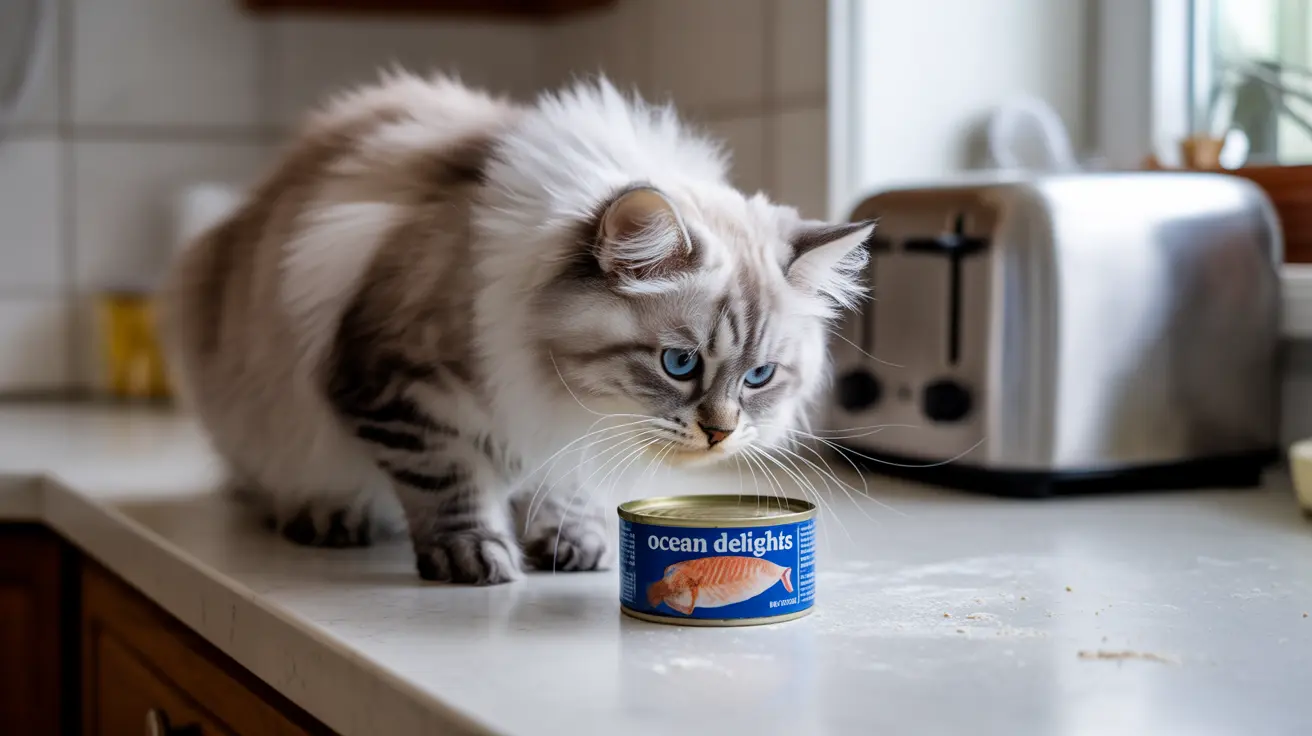As a cat owner, you might wonder about the safety of feeding fish bones to your feline friend. After all, cats are natural carnivores, and wild cats often consume their prey whole. However, the question of whether domestic cats can safely eat fish bones requires careful consideration of several important factors.
While cats may be drawn to fish and their bones, veterinary experts strongly advise against feeding fish bones to cats due to significant health risks. Let's explore why fish bones can be dangerous for cats and what safer alternatives you can offer instead.
Understanding the Dangers of Fish Bones for Cats
Fish bones pose several serious risks to cats, regardless of whether they're raw or cooked. These thin, sharp structures can cause immediate and potentially life-threatening problems for your feline companion.
Immediate Physical Hazards
The most immediate danger comes from choking and internal injuries. Fish bones can easily get lodged in your cat's throat, causing breathing difficulties and panic. These sharp structures can also scratch or puncture the digestive tract, leading to severe pain and potentially fatal complications.
Specific Risks of Cooked vs. Raw Bones
Cooked fish bones are particularly dangerous because the cooking process makes them brittle and prone to splintering. These fragments can cause even more damage than whole bones, potentially leading to internal bleeding or gastrointestinal blockages requiring emergency surgery.
Signs Your Cat May Have Eaten Fish Bones
If your cat has consumed fish bones, watch for these warning signs:
- Pawing at the mouth or throat
- Excessive drooling
- Gagging or retching
- Difficulty swallowing
- Loss of appetite
- Vomiting
- Lethargy or unusual behavior
Safe Fish Feeding Practices for Cats
To safely include fish in your cat's diet, follow these essential guidelines:
Proper Preparation Methods
Always thoroughly debone any fish before offering it to your cat. Consider using canned fish options specifically prepared for cats, which typically come without bones and are properly processed for feline consumption.
Safer Alternatives
Instead of whole fish with bones, opt for:
- Commercial cat food containing fish
- Boneless canned fish in water (unsalted)
- Fish-flavored treats specifically made for cats
- Cooked, deboned fish pieces as an occasional treat
Emergency Response to Fish Bone Ingestion
If you suspect your cat has swallowed fish bones, don't wait for symptoms to develop. Contact your veterinarian immediately for professional guidance. Quick action can prevent serious complications and may save your cat's life.
Frequently Asked Questions
Can cats safely eat fish bones, and what are the risks involved?
No, cats should not eat fish bones as they pose serious risks including choking, internal injuries, and gastrointestinal blockages. Both raw and cooked fish bones can cause potentially fatal complications.
Why are cooked fish bones more dangerous for cats than raw fish bones?
Cooked fish bones are more dangerous because cooking makes them brittle and prone to splintering. These sharp fragments can cause more severe internal injuries than raw bones.
What should I do if my cat accidentally swallows a fish bone?
Contact your veterinarian immediately. Don't wait for symptoms to develop, as quick professional intervention can prevent serious complications.
How can I prepare fish safely for my cat to avoid any bone hazards?
Always thoroughly debone any fish before feeding it to your cat. Consider using boneless canned fish or commercial cat food containing fish as safer alternatives.
Are there alternatives to feeding whole fish bones that still provide nutritional benefits?
Yes, you can provide the nutritional benefits of fish through commercial cat food, boneless canned fish (in water, unsalted), or fish oil supplements designed for cats. These alternatives offer the same nutrients without the risks associated with bones.
Remember, while cats might be naturally drawn to fish, their safety should always be your primary concern. By following these guidelines and choosing appropriate alternatives, you can ensure your cat enjoys the benefits of fish without the dangers of bones.






